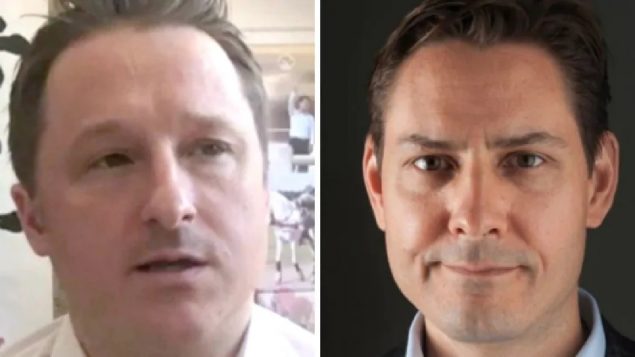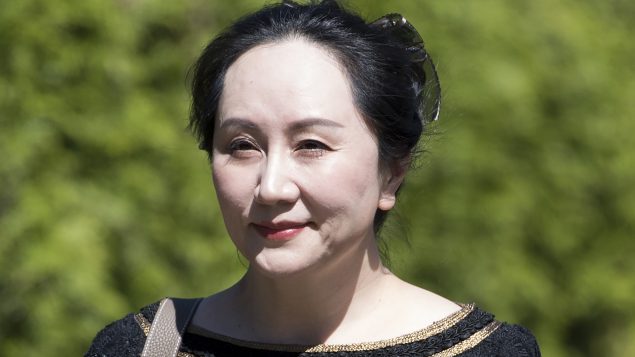In a decision that is likely to further inflame Ottawa’s diplomatic standoff with Beijing, a Canadian court ruled on Wednesday that the case concerning the extradition of Huawei chief financial officer Meng Wanzhou to the United States can proceed.
The Supreme Court of British Columbia ruled that the extradition case against Meng meets a key test of Canadian laws because the charges brought against her by the U.S. government are also considered a crime in Canada.
“I conclude that, as a matter of law, the double criminality requirement for extradition is capable of being met in this case,” Associate Chief Justice Heather Holmes wrote in her decision released in Vancouver.
However, the ruling does not mean that Meng will be extradited to the U.S. right away.
According to a statement by the Department of Justice, the 48-year-old daughter of Huawei founder Ren Zhengfei has to appear for another hearing on June 15 that will hear arguments whether there is sufficient evidence to warrant extradition.
Charges of fraud
The top executive of the Chinese telecommunication giant was arrested in Vancouver in December 2018 upon U.S. request.
Meng is charged with fraud in the United States for allegedly deceiving banks into a possible violation of U.S. economic sanctions against Iran.
Meng’s legal team has argued that because the allegations she faces in the U.S. are not a crime in Canada, since they are related to unilateral U.S. sanctions on Iran, the extradition request does not satisfy the “double criminality” test of Canada’s extradition law.
But Canadian prosecutors, speaking on behalf of U.S. authorities, have argued that allegations of fraud, not sanctions violations are at the heart of the U.S. extradition case against Meng.
Holmes sided with the prosecution argument.
“Ms. Meng’s approach to the double criminality analysis would seriously limit Canada’s ability to fulfill its international obligations in the extradition context for fraud and other economic crimes,” Holmes wrote.
“The offence of fraud has a vast potential scope. It may encompass a very wide range of conduct, a large expanse of time, and acts, people, and consequences in multiple places or jurisdictions.”
Holmes also noted that while Canada does not officially support the U.S. sanctions on Iran, these sanctions “are also not fundamentally contrary to Canadian values.”
In any case, she noted that a final decision in her extradition will be made by Canada’s justice minister who is “expressly required to refuse a surrender order for extradition if such an order would be ‘unjust or oppressive.’”
‘Pursuit of justice and freedom’
Huawei Canada tweeted Wednesday that the telecom giant is “disappointed with the ruling today” and expressed confidence in Meng’s innocence.
“Huawei continues to stand with Ms. Meng in her pursuit for justice and freedom,” the company said.
Huawei statement regarding Meng Wanzhou: pic.twitter.com/zvODmPhgIj
— Huawei Canada (@Huawei_Canada) May 27, 2020
Meng’s arrest set off a diplomatic row between Canada and China, as Ottawa finds itself caught between the two economic giants.
‘Continuous harm to China-Canada relations’

Chinese Foreign Ministry spokesman Zhao Lijian said Canada should release Meng to avoid continuous harm to relations (PRC)
China is demanding unconditional freedom for Meng, who was released on bail shortly after her arrest and lives in one of her Vancouver mansions, awaiting the results of the extradition proceedings.
“The Canadian side should immediately correct its mistake, release Ms. Meng and ensure her safe return to China at an early date so as to avoid any continuous harm to China-Canada relations,” Chinese Foreign Ministry spokesperson Zhao Lijian said on Tuesday.
“The U.S. and Canada abused their bilateral extradition treaty and arbitrarily took compulsory measures against a Chinese citizen without cause,” he added.
Days after Meng’s arrest in Vancouver, Chinese authorities arrested two Canadians, businessman Michael Spavor and former diplomat Michael Kovrig, over accusations of endangering state security, in what some saw as retaliation for her arrest.

Michael Spavor, left, and former Canadian diplomat Michael Kovrig, right, have spent more than 500 days in Chinese prisons in harsh conditions, and have not been allowed consular visits since January officials indicate. (The Associated Press/International Crisis Group/The Canadian Press)
Beijing has also piled up economic pressure on Canada by effectively stopping imports of some key commodities such as canola. In January of 2019, following a sudden retrial China handed a death sentence to Robert Schellenberg, a convicted Canadian drug smuggler.
Shortly after Wednesday’s court ruling, Canada’s Foreign Affairs Minister issued a statement, underlining that “Canadian judiciary operates independently.”
The decision on double criminality in Meng’s extradition process was an independent decision, Champagne said.
It is but one component in a multi-step legal process, he added vowing full transparency of the extradition process.
“We will continue to pursue principled engagement with China to address our bilateral differences and to cooperate in areas of mutual interest,” Champagne said.
“The Government of Canada’s top priority is and remains securing the release of Michael Kovrig and Michael Spavor, who have been arbitrarily detained for over 500 days. We will continue to advocate for their immediate release and seek clemency for Canadians facing the death penalty in China, including Robert Schellenberg.”







For reasons beyond our control, and for an undetermined period of time, our comment section is now closed. However, our social networks remain open to your contributions.